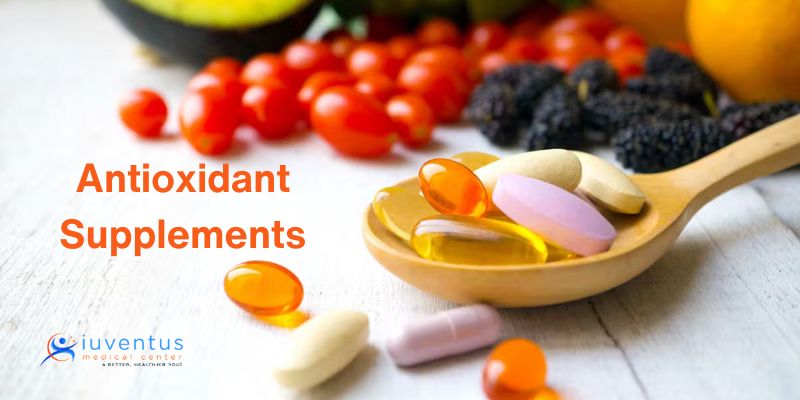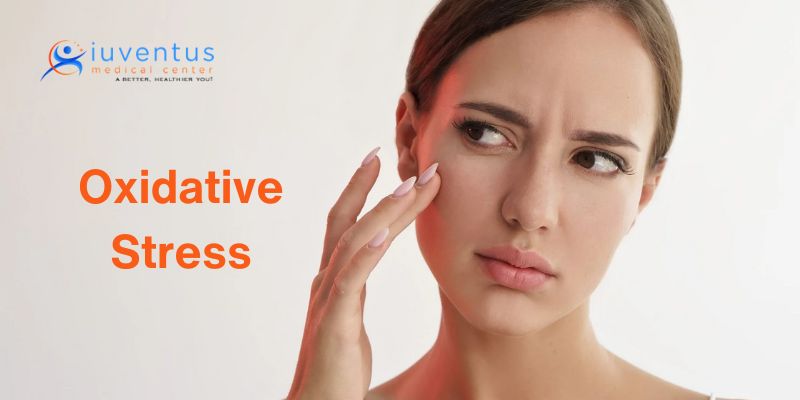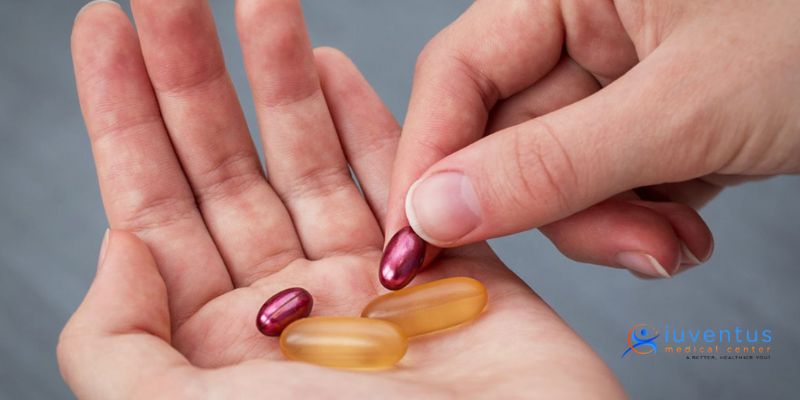Antioxidant Supplements: The Unsung Heroes of Your Body’s Health

In the quest for optimal health and longevity, we often explore various avenues, from diets to exercise routines and lifestyle choices. However, one group of compounds plays a crucial role in safeguarding our well-being that often goes unnoticed: antioxidants.
These unsung heroes of our body’s health are vital in protecting our cells from oxidative stress and damage linked to various chronic diseases and aging processes. This article will explore the world of antioxidants and how antioxidant supplements can be a valuable addition to your health regimen.
Understanding oxidative stress

Before we delve into the role of antioxidants, it is essential to understand the concept of oxidative stress. Our bodies are constantly exposed to environmental factors, such as pollution, radiation, and even normal metabolic processes, that produce harmful molecules called free radicals. These highly reactive molecules can damage cells, proteins, and DNA.
Oxidative stress occurs when there is an imbalance between free radicals and antioxidants in the body. When there are too many free radicals and too few antioxidants to neutralize them, it can lead to oxidative damage. This damage is implicated in the developing of numerous health conditions, including cardiovascular diseases, cancer, neurodegenerative diseases, and premature aging.
The Role of Antioxidants

Antioxidants help neutralize free radicals, thereby preventing or mitigating oxidative damage. They are like the body’s natural defense system against the harmful effects of oxidative stress. Common antioxidants include enzymes like superoxide dismutase, catalase, glutathione peroxidase, vitamins C and E, and minerals like selenium.
Antioxidants donate electrons to free radicals, stabilizing them and preventing further damage. This process converts free radicals into harmless substances, allowing the body to eliminate them without causing harm to healthy cells.
Sources of antioxidants
Antioxidants can be obtained from various sources, including food and dietary supplements. Here are some familiar sources of antioxidants:
-
Fruits and Vegetables: Colorful fruits and vegetables are rich in antioxidants. Examples include berries (e.g., blueberries, strawberries), citrus fruits (e.g., oranges, lemons), leafy greens (e.g., spinach, kale), and cruciferous vegetables (e.g., broccoli, cauliflower).
-
Nuts and Seeds: Almonds, walnuts, and flaxseeds are excellent antioxidants, particularly vitamin E and selenium.
-
Herbs and Spices: Certain herbs and spices, like turmeric, cinnamon, and oregano, are known for their antioxidant properties.
-
Beverages: Green tea and red wine contain antioxidants such as catechins and resveratrol.
-
Supplements: Antioxidant supplements are available in various forms, including vitamins (e.g., vitamin C, vitamin E), minerals (e.g., selenium), and herbal extracts (e.g., grape seed extract, coenzyme Q10).
The Benefits of Antioxidant Supplements
While a balanced diet rich in fruits and vegetables can provide a significant amount of antioxidants, some individuals may benefit from antioxidant supplements for several reasons:
-
Dietary Gaps: Many people need more antioxidant-rich foods due to dietary preferences, restrictions, or busy lifestyles. Supplements help bridge the gap and ensure an adequate intake of antioxidants.
-
Increased Need: Certain medical conditions, such as chronic inflammation, diabetes, and autoimmune diseases, can increase the body’s demand for antioxidants. Supplementing with antioxidants can help meet this increased need.
-
Aging: Our bodies may become less efficient at producing antioxidants as we age. Antioxidant supplements can help support the body’s natural defense system against oxidative stress.
-
Environmental Factors: Individuals exposed to higher environmental pollutants or those with demanding jobs or lifestyles may require additional antioxidant support to combat the increased oxidative stress.
-
Specific Health Conditions: Some health conditions, such as age-related macular degeneration (AMD) and cardiovascular diseases, have been linked to oxidative stress. Antioxidant supplements may play a role in preventing or managing these conditions.
Are Antioxidant Supplements Safe?
Antioxidant supplements, when used appropriately, are generally safe for most people. However, it is essential to keep a few key considerations in mind:
-
Dosage: Taking excessive amounts of antioxidant supplements, especially fat-soluble vitamins like E, can lead to toxicity. It is important to follow recommended dosages and consult a healthcare provider if unsure.
-
Interactions: Antioxidant supplements can interact with certain medications or other supplements. Always consult a healthcare professional before adding new supplements to your routine, especially if you are on medications.
-
Quality: Choose high-quality supplements from reputable brands to ensure purity and potency. Look for third-party testing and certifications when possible.
-
Individual Needs: The need for antioxidant supplements varies from person to person. Consult with a healthcare provider or a registered dietitian to determine your requirements.
Balancing antioxidant intake
While antioxidants offer numerous health benefits, it is essential to remember that more is not always better. Excessive intake of antioxidant supplements can have adverse effects and may even contribute to health problems. Here are some guidelines to help you maintain a balanced approach to antioxidant intake:
-
Diversify Your Sources: Prioritize a diverse diet rich in antioxidant-rich foods rather than relying solely on supplements. This ensures you obtain a broad spectrum of antioxidants and other essential nutrients.
-
Consult a Healthcare Provider: Before starting any new supplement regimen, consult a healthcare provider or registered dietitian. They can assess your individual needs and guide appropriate dosages.
-
Avoid Mega-Dosing: Resist the temptation to mega-dose on antioxidant supplements. Stick to recommended daily allowances and avoid taking excessive amounts, which can lead to adverse effects.
-
Consider Whole Foods: Whole foods provide antioxidants, other beneficial compounds, and nutrients. For example, fruits and vegetables contain fiber, vitamins, minerals, and antioxidants.
-
Monitor Your Health: Pay attention to your body’s response to supplements. Consult a healthcare professional if you experience unusual symptoms or side effects.
Conclusion
Antioxidants are the unsung heroes of our body’s health, working tirelessly to protect our cells from the damaging effects of oxidative stress. While a well-balanced diet rich in fruits and vegetables should be the primary source of antioxidants, supplements can be a valuable addition, especially for those with specific health conditions or dietary gaps.
